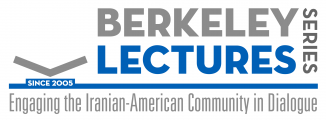Berkeley Lecture Series Presents:
A lecture by
Dr. Kazem Alamdari
Topic:
Transition pathology and two protective powers in Iran
Date: Sunday, November 12, 2023
Time: 11:00 am (PST); 10:30 pm (Tehran); 8 pm (CET)
Place: This lecture will be a hybrid In-Person/Zoom meeting. Feel free to join us at the Central Stage to participate in the lecture.
In-person: Central Stage – 5221 Central Ave. Richmond, CA 94804
On-line: BLS Virtual Conference Room
گفتارهای برکلی
دارای درجه لیسانس روانشناسی از دانشگاه تهران، فوق لیسانس مدیریت آموزشی و دکترای جامعه شناسی از دانشگاه ایلینویز آمریکاست و به مدت 30 سال در دانشگاه های لس آنجلس، نورث ریج، و یو سی ال آ تدریس و تحقیق کرده است.
موضوع:
آسیب شناسی دوره گذار و دو قدرت محافظ در «موج سوم دموکراسی» در 50 سال گذشته، بیش از 100 کشور برای غلبه بر دیکتاتوری و دستیابی به آزادی و دموکراسی تلاش کردند. اما در این دوره تنها 65 کشور توانستند با درجات مختلف به اهداف خود برسند. کشورهای با اکثریت مسلمان خاورمیانه و شمال آفریقا (MENA) از جمله ایران از جمله موارد ناموفق بوده اند. در حالی که در همان دوره زمانی کشورهای آمریکای لاتین و اروپای شرقی بدون تجربه انقلاب های خشونت آمیز به دموکراسی نسبی دست یافته اند. پژوهش حاضر به بررسی دلایل این اختلاف بین این دو منطقه و درسهای ممکن برای ایران میپردازد.
تلاش مردم ایران برای پایان دادن به دیکتاتوری و کسب آزادی با وجود تجربه دو انقلاب ناموفق بوده است. در زمان «جمهوری اسلامی» تلاشهای مردم برای تغییر و اصلاح در درون نظام ناموفق ماند، بنابراین از سال 1396 تقاضای تغییر نظام آغاز شد و در سطح ملی در جنبش انقلابی «زن، زندگی، آزادی» تجلی یافت.
تجارب چندین کشور نشان داده است که دیکتاتوری می تواند در روند یک جنبش انقلابی فرو بریزد، اما به جای دموکراسی می تواند منجر به هرج و مرج و جنگ داخلی و بازگشت دیکتاتوری شود. برای جلوگیری از این عواقب ناخواسته، دو نیروی محافظ باید در طول دوره انتقال تشکیل شود.
تاریخ: 12 نوامبر 2023
ساعت: 11 صبح کاليفرنيا، 10:30 شب تهران، 8 شب اروپای مرکزی
محل: سالن کنفرانس های مجازی گفتارهای برکلی و سنترال استیج
سخنرانی به زبان فارسی
In the “Third Wave of Democracy” in the last 50 years, more than 100 countries tried to overcome dictatorship and achieve freedom and democracy. But in this period, only 65 countries were able to reach their goals with different degrees. The Muslim-majority countries of the Middle East and North Africa (MENA), including Iran, have been among unsuccessful cases. While in the same period of time the countries of Latin America and Eastern Europe have achieved relative democracy without experiencing violent revolutions. The present research explores the reasons behind this discrepancy between these two regions and possible lessons to learn for Iran.
The efforts of the Iranian people to end dictatorship and gain freedom has been unsuccessful despite the experience of two revolutions. Under the “Islamic Republic” people’s efforts for change and reform within the system remained unsuccessful, therefore the demand for system change began to prevail as of 2016 and manifested itself at national levels in the “Woman, Life, Freedom” revolutionary movement.
Experiences in several countries have shown that dictatorship can collapse in the process of a revolutionary movement, but instead of democracy, it can lead to chaos and civil war and return of dictatorship. In order to avoid this unintended aftermath, two protective forces should be formed during the transition period.
 Kazem Alamdari, received his Ph. D. in sociology from the University of Illinois, Champaign-Urban, his MA in Educational Administration from Illinois State University, and his BS from the University of Tehran in Psychology. He has taught at various universities, including UCLA, CSULA, and CSUN. Alamdari has published Ten books and numerous articles in English and Persian, including: 1. Civil Society: Theories, Contexts, and Experiences, 2015; 2. Why the Reform Failed: A Critical Study of the Eight Year Reform Era in Iran: 1997-2005, 2008; 3. Why the Middle East Lagged Behind: The Case of Iran 2004; 4. The Global Crisis: A Critique of the Clash of Civilizations and Dialogue Among Civilizations, 2003; and 5. a best seller that reached to 19th edition Why Iran Lagged Behind and the West Moved Forward, 2000 – 2014. His latest articles include: “Global Civil-Society Movements: What the World Social Forum Can Do to Change the World’s Situation,” Sociology and Criminology, 2014, 2:2. His article “Religion and Development Revisited: Comparing Islam and Christianity with Reference to the Case of Iran,” in the Journal of Developing Societies, London: Sage, Vol 20 (1-2), has been one of “The 50 Most-Frequently-Read Articles” in five years, reaching number 2 in January 2005. Alamdari was the recipient of a fellowship from the Japan Society for Promotion of Science (JSPS) in Japan, Kyushu University in 1997. As a public intellectual, he is frequently featured in the media and presents lectures at national and international conferences in different parts of the world.
Kazem Alamdari, received his Ph. D. in sociology from the University of Illinois, Champaign-Urban, his MA in Educational Administration from Illinois State University, and his BS from the University of Tehran in Psychology. He has taught at various universities, including UCLA, CSULA, and CSUN. Alamdari has published Ten books and numerous articles in English and Persian, including: 1. Civil Society: Theories, Contexts, and Experiences, 2015; 2. Why the Reform Failed: A Critical Study of the Eight Year Reform Era in Iran: 1997-2005, 2008; 3. Why the Middle East Lagged Behind: The Case of Iran 2004; 4. The Global Crisis: A Critique of the Clash of Civilizations and Dialogue Among Civilizations, 2003; and 5. a best seller that reached to 19th edition Why Iran Lagged Behind and the West Moved Forward, 2000 – 2014. His latest articles include: “Global Civil-Society Movements: What the World Social Forum Can Do to Change the World’s Situation,” Sociology and Criminology, 2014, 2:2. His article “Religion and Development Revisited: Comparing Islam and Christianity with Reference to the Case of Iran,” in the Journal of Developing Societies, London: Sage, Vol 20 (1-2), has been one of “The 50 Most-Frequently-Read Articles” in five years, reaching number 2 in January 2005. Alamdari was the recipient of a fellowship from the Japan Society for Promotion of Science (JSPS) in Japan, Kyushu University in 1997. As a public intellectual, he is frequently featured in the media and presents lectures at national and international conferences in different parts of the world.
Lecture in Persian
Further questions may be directed to berkeleylectureseries@gmail.com
Visit our Facebook page, Berkeley Lecture Series
Category: Current Event





